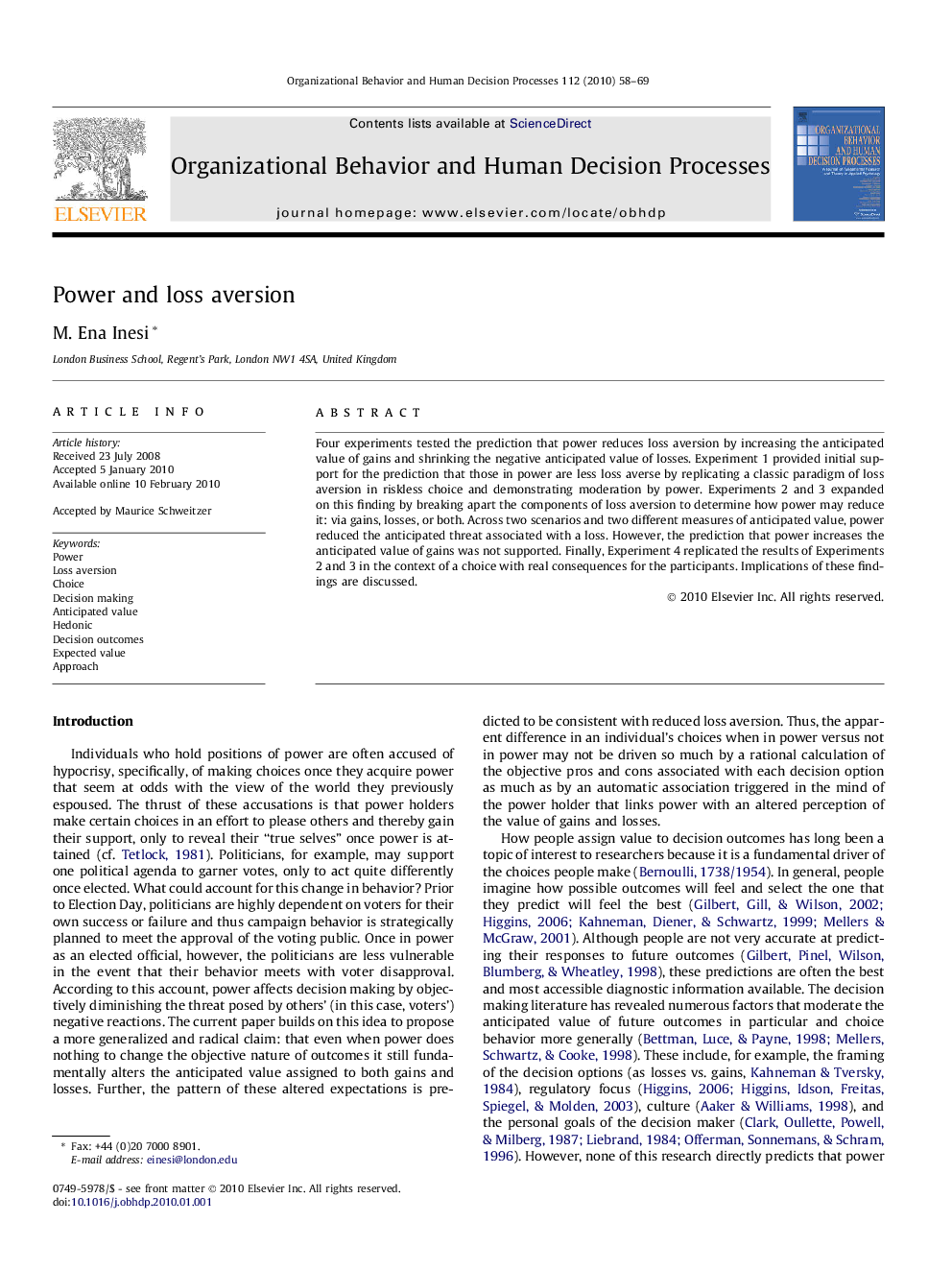| Article ID | Journal | Published Year | Pages | File Type |
|---|---|---|---|---|
| 888840 | Organizational Behavior and Human Decision Processes | 2010 | 12 Pages |
Four experiments tested the prediction that power reduces loss aversion by increasing the anticipated value of gains and shrinking the negative anticipated value of losses. Experiment 1 provided initial support for the prediction that those in power are less loss averse by replicating a classic paradigm of loss aversion in riskless choice and demonstrating moderation by power. Experiments 2 and 3 expanded on this finding by breaking apart the components of loss aversion to determine how power may reduce it: via gains, losses, or both. Across two scenarios and two different measures of anticipated value, power reduced the anticipated threat associated with a loss. However, the prediction that power increases the anticipated value of gains was not supported. Finally, Experiment 4 replicated the results of Experiments 2 and 3 in the context of a choice with real consequences for the participants. Implications of these findings are discussed.
